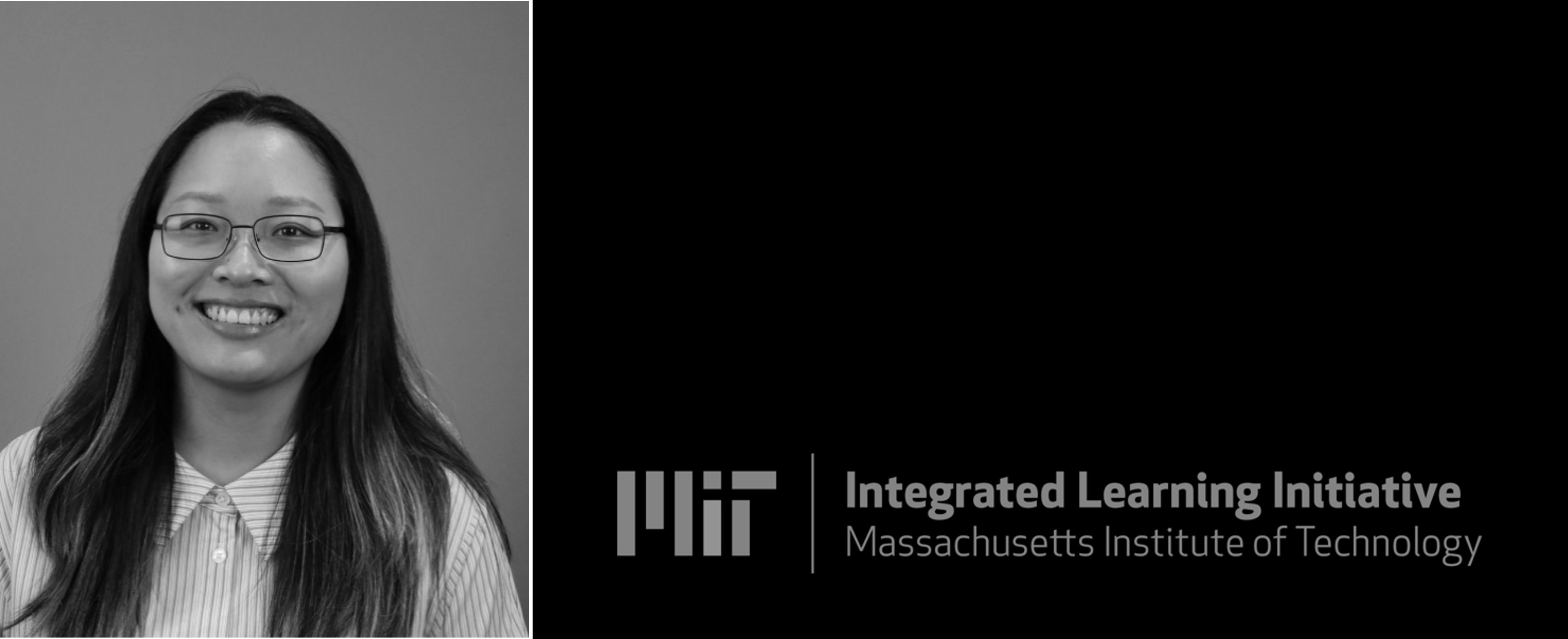
Heeryung Choi is a Digital Learning Postdoctoral Associate with the Open Learning Digital Learning Lab (DLL) and the MIT Center for Transportation and Logistics (CTL). Choi received her Bachelors and Masters from Seoul National University in English Education and Cognitive Science, respectively. She then received her PhD in Information from the University of Michigan.
Recently, Choi’s research has focused on interventions to help online learners. Her recent MITili funded research, Meta-LAD, hopes to continue developing a Metacognitive-Learning Analytics Dashboard which could identify learners’ profiles and personalize its metacognitive feedback as well as improve learners' metacognitive skills and performance in the CTL SC0x courses.
How has your experience as a student prepared you to introduce interventions that help online learners?
My experience as a “not-so-successful” online learner led me to study how to improve online learning. As one of the learners who was thrilled to see the numerous online courses offered by prestigious universities, I enthusiastically enrolled in various online courses ranging from programming to statistics. However, despite my initial excitement, I struggled to complete most of these courses. At times, I was disappointed by course content which did not take into account the diverse backgrounds of learners. At other times, I failed to stay motivated enough to finish a course. As I discovered that such "unsuccessful" experiences were quite common among online learners, I began to wonder how to tackle this issue and fully leverage the unique advantages that online learning provides.
Can you tell us a little about Meta-LAD and how that research is progressing?
As I mentioned earlier, it is pretty common to see learners encounter difficulties in finishing online courses. While there could be several ways to address the issue, offering support to learners to enhance their self-regulation skills is often an effective solution. By self-regulation, I refer to a continuous cycle of planning, monitoring, and reflection that is crucial for successful learning. In order to support online learners’ self-regulation abilities, our team has been working on developing a course dashboard. The course dashboard, which we call Meta-LAD, is designed to plan, monitor, and reflect on their progress with reference points, visualized progress, and actionable feedback messages.
What is the Digital Learning Lab and why is it so important?
Digital Learning Lab (DLL) aims to innovate digital learning both at MIT and beyond. Its members include digital learning scientists and digital learning fellows. DLL hosts biweekly meetings to share and discuss ongoing projects related to digital learning, which is an excellent way to gain insight into different approaches and perspectives aimed at enhancing digital learning environments. What makes this particularly exciting is that the DLL endeavors to have a real impact on learning outcomes for all learners, not just those at MIT.
What advice would you have for someone looking for a position in higher education who was also passionate about education and helping people?
I would like to stress the importance of understanding who their learners are. Each group of learners has distinct needs and challenges. Any educational support, from modifying curriculums to designing interventions, should begin with a thorough understanding of who the learners are. This is especially crucial in the case of online higher education settings, where global learners from diverse backgrounds come together to pursue their courses.
What is your favorite thing about MIT?
MIT is an exceptional institution for researchers seeking opportunities to develop and implement dynamic and innovative ideas to make real impact. I was delighted to discover that people here are open to unconventional ideas, if they are well-supported with sound reasoning. Such proactive and open environments are particularly critical in domains such as learning analytics, which seeks to create actual impact in real-world settings.